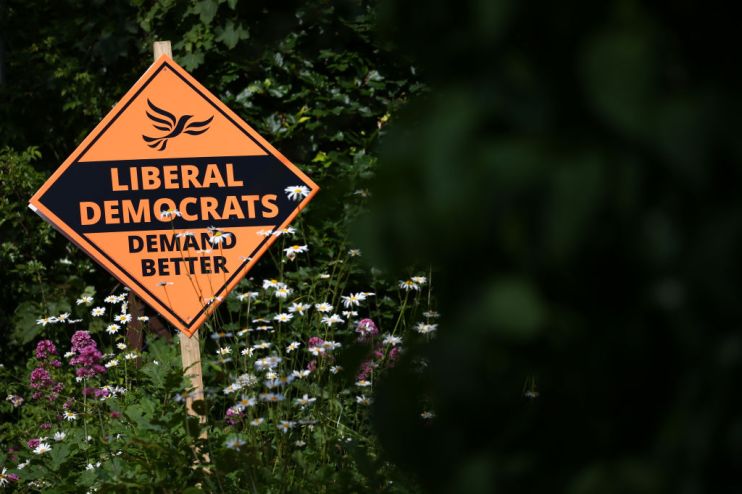In whose backyard, then? Lib Dem nimbyism in local areas comes at the expense of the country

Last week the government suffered an unexpected setback in the loss of the Chesham and Amersham by-election to the Liberal Democrats. The received wisdom is that this is not a fatal wound, nor the beginning of a trend away from the Conservatives in their Home Counties heartlands, but rather a reversion to the old pattern of incumbent parties losing by-elections, even in safe seats, to tactically canny, locally-engaged opposition candidates.
The nature of the loss in Chesham and Amersham, where the Liberal Democrat candidate, Sarah Green, overturned a majority of more than 16,000, is worth examination. In a less-than-gracious concession speech, Tory candidate Peter Fleet noted the Lib Dems had thrown “not so much the kitchen sink, but the microwave and everything else” at the seat. Some hackles were also raised by Lib Dem leader Sir Ed Davey gladhanding the locals in the constituency while the sitting MP, Dame Cheryl Gillan, was still dying of cancer.
A proposal of a tactical alliance was rejected by other candidates, despite both former Tory-turned-Lib Dem MP Phillip Lee and veteran Guardian journalist Polly Toynbee calling for one. They urged both Labour and the Green Party, who clearly had no chance of victory, not to field a candidate, to allow the Lib Dem nominee a clear run as the representative of a “progressive” coalition. Such cooperation is rare in British politics, and the idea was not pursued.
The platform on which Green stood was instructive. She stressed her opposition to the government’s Planning Bill, describing it as “a developer’s free-for-all”, and vowed to be a “thorn in the side” of the HS2 high-speed rail project which runs through the Buckinghamshire constituency. Fair enough, you might think—but at the last election the Liberal Democrats wanted HS2 to be built as quickly as possible as a major contributor towards the UK’s decarbonisation.
It is a well-tried political tactic: vehement opposition to the implementation of a policy at a local level, while supporting the same policy in principle at a national level. It is a peculiarly dishonest form of Nimbyism, which might best be characterised as “In someone else’s backyard”. It has served by-election candidates, Lib Dems not least among them, well over the years. But it is a rancid garnish for any attempts to plan major infrastructure projects in this country.
The current government is in a spending mood. It understands that the purse strings must be loosened to help the UK recover from the pandemic, but it also sees Whitehall investment as an excellent way of shoring up Conservative support in less well-off regions like those in the “Red Wall”. The £3.6bn Towns Fund has been channelled to predominantly Conservative-held seats, and Tory-ruled areas like Tees Valley and the West Midlands have seen inward investment and structural changes such as freeports to give them an economic boost. Of course this can be painted as part of the levelling-up agenda; but the voters are not stupid.
Yet more affluent areas, like Chesham and Amersham, remain resistant to building projects which will affect them. They want the economic benefits of growth and investment, but none of the outward inconvenience. This is an understandable human reaction. But to govern, as Pierre Mendès France said, is to choose, and governments must stand up for what they believe to be right and in the national interest. The Planning Bill is, at least, a step in that direction: it will allow development in designated “growth zones” in spite of local opposition, while local councils will lose their power to decide planning applications on a case-by-case basis. Whether or not the policy is right, it is at least consistent and courageous.
Even worse than governments ducking hard decisions is opposition parties seizing opportunities to use local feeling, even if it is against their own policies, to twist the government’s tail. This is the worst kind of politics: shallow, opportunistic, short-term and dishonest. If we are to make the kind of progress we need as a nation, it will involve investment in big infrastructure and, inevitably, some hard choices. Sooner or later, the voters will realise this, and will rightly look with suspicion on politicians who seek to move the problem outside their own bailiwick, and simply adopt an “I’m all right, Jack” attitude.
The electorate is capable of self-deception. It is also slow to accept unwelcome truths. But it gets there in the end, and when it does, it knows where to apportion to blame. That can be forestalled by a bit of honesty on all sides. Wouldn’t it be a nice change?